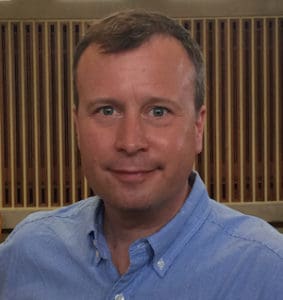For those practitioners who find palpation to be a key part of their practice, the work of Dr. Wang opens a whole new way of interacting with patients. And for those who are interested in how to puzzle through confounding clinical cases, Dr. Wang has some ways of clarifying complex situations.
Listen in to this conversation that gives you a personal view of Dr. Wang and his work through the eyes of his apprentice Jason Robertson, co-author of Applied Channel Theory in Chinese Medicine, Wang Ju-Yi’s Lectures on Channel Therapeutics.
- A couple of books that give you a glimpse into the world Wang Ju-Yi was born into.
- The winding road that lead to Jason becoming Dr. Wang’s apprentice.
- Some stories about Beijing at the beginning of this century.
- Integrating palpation into your clinical practice.
- Considering the use of Lung six.
- Dr. Wang’s favorite books and his method of study
Clinical Tip:
If you have interest in expanding your palpation skills in the spirit of Dr. Wang, start with a relaxed approach. Use your thumb and travel along the channels from the hands to the elbows and from the feet to the knees on every patient as you talk to them about their chief complaint. Don’t worry about actually using the information you feel at first. Just massage the channels to open them up before needling.
The guest of this show
 I began studying Chinese when I was 17 after having a great high-school teacher. In college I majored in East Asian studies, eventually spending most of my 20s living and working in Taiwan. After teaching kindergarten and playing music with a motley collection of expatriates for a few years, I moved to Taipei, enrolled in further language study and eventually, somewhat improbably, ended up as a translator for a Dutch bank on the Taiwan Stock Exchange. Finance didn’t take. What had begun as a long-term interest in Daoism morphed as these things do into a pursuit of Chinese medicine and the story went on from there.
I began studying Chinese when I was 17 after having a great high-school teacher. In college I majored in East Asian studies, eventually spending most of my 20s living and working in Taiwan. After teaching kindergarten and playing music with a motley collection of expatriates for a few years, I moved to Taipei, enrolled in further language study and eventually, somewhat improbably, ended up as a translator for a Dutch bank on the Taiwan Stock Exchange. Finance didn’t take. What had begun as a long-term interest in Daoism morphed as these things do into a pursuit of Chinese medicine and the story went on from there.
Links and Resources
The Channel Palpation website has lots of good information about Dr. Wang’s work, some free articles, and a list of courses if you want to get hands-on with this kind of hands on.
If you don’t already have it, get your own copy of Applied Channel Theory in Chinese Medicine, Wang Ju-Yi’s Lectures on Channel Therapeutics.
The Soong Dynasty is one of the books we talked about at the beginning of the show that gives a fascinating glimpse behind the scenes and into the history of China at the beginning of the 20th century and how one family’s influence touched both the Mainland and Taiwan.
Midnight in Peking is the true murder mystery that gives you a glimpse into the world that Wang Ju-yi was born into.
Connect with the Wang Ju-Yi’s Applied Channel Theory group on Facebook.
Join the discussion!
Leave a comment on Qiological’s Facebook page.
